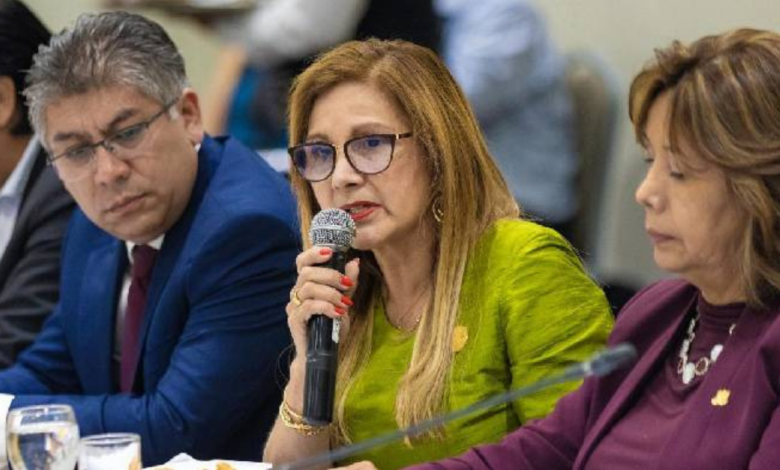Transformative Leadership as the Nancy Chiabra Alcaldesa De Bellavista Ano 1986

In 1986, Nancy Chiabra broke new ground as the first female mayor of Bellavista, a vibrant district in Callao, Peru. Her tenure is remembered as a period of significant transformation, characterized by initiatives that promoted economic revitalization, social welfare, and infrastructure development. This article explores Chiabra’s mayoral achievements, her approach to governance, and the lasting impact of her leadership on Bellavista.
Background of Bellavista
Bellavista, a district established in 1936, experienced rapid demographic growth and urbanization, particularly in the 1980s. At this time, Peru faced economic challenges and political instability, including the impacts of terrorism and hyperinflation. Local leaders like Chiabra had to navigate numerous obstacles to promote stability and community development in this setting.
Political Ascendancy
Chiabra’s journey into politics was driven by her deep commitment to social issues and community welfare. Her background in public administration and early involvement in community organizations gave her insights into the practical needs of Bellavista’s residents, setting the stage for her eventual election as mayor.
Economic Initiatives
During her tenure, Chiabra focused on revitalizing Bellavista’s economy, heavily reliant on agriculture. She introduced policies to stabilize agricultural markets and support farmers, aiming to mitigate the economic downturn that affected the community. Her administration collaborated with local cooperatives and neighboring municipalities to improve market access for local produce and encouraged entrepreneurship by facilitating microloans and reducing bureaucratic hurdles for new businesses.
Social Welfare Programs
Understanding the disparities in the availability of essential services, Chiabra prioritized healthcare and education. She worked on expanding healthcare access by upgrading existing centers and establishing new ones. Her administration enhanced school infrastructure and launched scholarship programs, significantly boosting enrollment and literacy rates.
Infrastructure Development
Chiabra’s vision for a modernized Bellavista led to substantial improvements in infrastructure. Her government undertook projects to repair and expand roads, develop new public transportation routes, and enhance the water and sanitation systems. These initiatives improved the residents’ daily lives and laid the groundwork for sustainable urban development.
Community Engagement and Governance

A hallmark of Chiabra’s leadership was her emphasis on community engagement and transparent governance. She often organized public meetings to involve citizens in the decision-making process, fostering a sense of community and cooperation. Her administration was known for its open financial reporting and initiatives to ensure government accountability, which bolstered public trust.
Challenges and Opposition
Despite her successes, Chiabra’s administration faced considerable challenges, including navigating the local political landscape marked by opposition to her progressive policies. She also contended with limited financial resources, which required careful prioritization of projects and initiatives.
Legacy and Impact
Nancy Chiabra’s tenure as the mayor of Bellavista is a testament to the influence of visionary leadership in local governance. Her efforts in economic development, social reform, and infrastructure have had lasting effects, contributing to the ongoing prosperity and improved quality of life in Bellavista. Her commitment to community involvement and equitable development continues to inspire future generations.
Conclusion
Nancy Chiabra’s leadership as the alcaldesa of Bellavista in 1986 was marked by a profound dedication to the community’s growth and well-being. Through innovative policies and inclusive governance, she transformed Bellavista and set a benchmark for future leaders in Peru and beyond. Chiabra’s legacy reminds us of the decisive role of informed and committed local governance in shaping communities’ futures.
FAQs on Nancy Chiabra Alcaldesa De Bellavista Ano 1986
Who was Nancy ChCabra?
In 1986, Nancy Chiabra was the mayor of Bellavista, a district in Callao, Peru. She was noted for her transformative leadership and for being the first woman to hold the office in Bellavista.
What were the key challenges Nancy Chiabra faced during her tenure as mayor?
Chiabra faced several challenges during her tenure, including economic difficulties, outdated infrastructure, and social inequality. She navigated these issues in a politically turbulent period marked by hyperinflation and political instability in Peru.
What significant initiatives did Nancy Chiabra implement in Bellavista?
Chiabra implemented several significant initiatives aimed at economic revitalization, improving social welfare, and upgrading infrastructure. These included stabilizing agricultural markets, expanding healthcare and education access, and undertaking major infrastructure projects like road expansions and enhancing public utilities.
How did Nancy Chiabra promote community engagement in her governance?
Chiabra was a strong advocate for community engagement. She regularly organized public meetings, fostering an inclusive atmosphere where citizens could voice their concerns and contribute to decision-making. This approach helped align her policies with the community’s needs and built a stronger rapport between the government and its citizens.
What is Nancy Chiabra’s legacy in Bellavista?
Nancy Chiabra’s legacy in Bellavista is one of progressive change and enduring community impact. Her tenure led to improved living standards through better infrastructure, more accessible public services, and a strengthened local economy. Her leadership continues to be an inspiring example for future leaders in Bellavista and beyond.